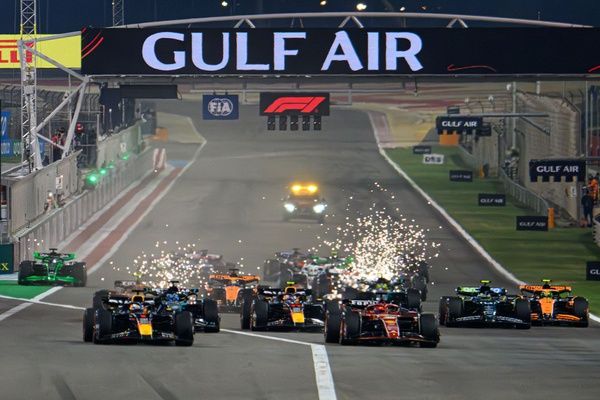Jordan: Loss of Deutsche Post 'Major, Not Critical'
Jordan's loss of Deutsche Post as their main sponsor comes as a major financial setback but is not a critical blow to the team, head of marketing Mark Gallagher said.

Jordan's loss of Deutsche Post as their main sponsor comes as a major financial setback but is not a critical blow to the team, head of marketing Mark Gallagher said.
Deutsche Post announced this week it would not renew its sponsorship contract, which would have been worth $24 million next year to Jordan. Gallagher told Reuters the team had not yet found a replacement for their title sponsor but had known of the German company's decision earlier this year and reduced their 2003 budget accordingly, cutting 50 jobs.
"We have already set our budget for next year assuming we don't replace Deutsche Post. We've reduced our costs and we continue to have sponsorship from other companies," Gallagher said.
"Although Deutsche Post leaving us was a blow...it is certainly not critical. Our biggest major sponsor is Benson & Hedges...we are at the moment discussing the scale of their activity next year."
Gallagher said the team hoped to announce a new sponsor in the next two to three weeks.
Benson & Hedges, who have been with Jordan since 1996 and were the main sponsors until last year, could resume their title role but any deal would have to be worked out within the framework of a global tobacco sponsorship ban which comes into effect in four years' time.
The International Automobile Federation (FIA) is to introduce a worldwide ban on tobacco sponsorship in motorsport from the end of the 2006 season, in line with the World Health Organisation's Framework Convention on Tobacco Control.
The transition to other forms of sponsorship looked to be taking off when, at the height of the media and technology boom three years ago, companies such as WorldCom, Nortel Networks and Marconi got involved in the sport.
Those companies have since pulled out after suffering severe hardship as a result of a downturn in the sector. WorldCom spectacularly filed for the world's largest bankruptcy in July after accounting irregularities were uncovered.
"The Formula One industry began to feel that it was beginning to replace tobacco as the most significant sector of sponsorship," Gallagher said. "It seemed like technology brands were beginning to be quite prolific sponsors in Formula One.
"What happened three or four years later was that those companies suffered substantial downturns and had to pull out of Formula One because they had more pressing problems. What we are left with is a sport that is more reliant on tobacco sponsorship relatively speaking than it was three or four years ago."
The coming four years would be critical in terms of sponsorship deals, he said.
"We are looking for a recovery in the US economy and Japan because we need to see recoveries particularly in technology stocks, telecoms companies and financial services firms that would give us the opportunity for new sponsors."
Certain partnerships involving technology companies have been successful, notably Ferrari's link-up with mobile phone giant Vodafone, which posted strong first-half earnings this week.
"The Vodafone expenditure at Ferrari is certainly on a scale equal to or greater than any tobacco sponsor and they are doing extremely well as a company, they are very cash rich and they have reaped huge benefits from the F1 programme at Ferrari this year," Gallagher said.
BMW Williams have also succeeded in moving away from tobacco, replacing former sponsor Rothmans with Compaq/HP, while Toyota's principal sponsor is Japanese electronic goods brand Panasonic.
In a year when one team, Prost, went bankrupt and another, Arrows, missed the final five races of the season because of financial issues, and when the sport's popularity has waned due to Ferrari's and Michael Schumacher's domination, teams are in no position to be choosy about their source of backing.
The mood was summed up by Niki Lauda, boss of Jaguar, whose main sponsors are banking group HSBC and Becks beer.
Commenting on the FIA's decision to axe the Belgian Grand Prix last month because of a row over the timing of their tobacco ban he said: "We need tobacco because in the world economy today we need to keep every sponsor and not frighten them away. It's important to have advertising on cars - this is the principle of Formula One, you need any sponsor you can get."
Be part of the Autosport community
Join the conversationShare Or Save This Story
Subscribe and access Autosport.com with your ad-blocker.
From Formula 1 to MotoGP we report straight from the paddock because we love our sport, just like you. In order to keep delivering our expert journalism, our website uses advertising. Still, we want to give you the opportunity to enjoy an ad-free and tracker-free website and to continue using your adblocker.


















Top Comments